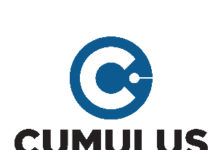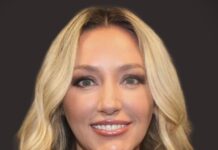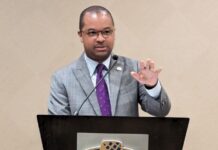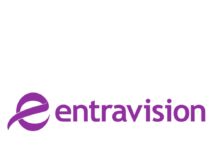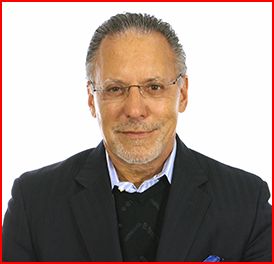
One week from today, Jay Abraham will sit down with Shark Tank’s Daymond John in a one-on-one conversation at Radio Ink’s Forecast gathering in New York City. He’s also a keynote speaker at the event. Abraham is recognized as one of the world’s most successful marketing strategists, business innovators, entrepreneurial advisors and masters of “revenue and performance enhancement and acceleration.” Even John, a highly successful entrepreneur and Television star, calls Abraham a mentor in our October cover story. We spoke to Abraham about how the radio industry and radio salespeople can better market themselves. Here’s what he had to say.
Radio Ink: What would you tell the radio industry to do to market itself better?
Jay Abraham: The first is that marketing represents a multitude of different opportunities. One is to dimentionalize the differential how your product service is impacting a target audience, another is to be able to do any kind of empirical or anecdotal evidence that there is a differential in the way your message is received, the penetration or whatever it is. You need to be able to divide and conquer if you are competing against formidable alternative media. The other is to be very aware as some of these big chains have enormous advantage that they don’t use. Let’s say a big group has 2,000-3,000 salespeople and maybe 30K-40K advertising clients. I learned this when I did work with Deming because he is about process improvement and he takes every element in a system and he isolates every factor that holds a lesson that can be leveraged. So you would take all your advertisers and ask a bunch of questions, which one is really getting the best outcome and why and what and how. You analyze exactly what they are doing whether they are agency driven or independent or house agency driven and you would see commonalities of performance. Conversely, you would look at all your salespeople and you would see who excels at different elements of the revenue generating process. Let me give the Deming example. He would take a manufacturing facility that would have 30 people all on a line doing the same thing and he would break down all the processes thru-put, down-time, maintenance time, variation in the tolerance etc. and he would see who excelled most in each of those areas and then how much of a differential the higher performer was. He would take the 20 people that were better at that one thing and figure out what each one did different and how to take the combination of those insights and processes combine them into a hybrid and teach them to everyone else who was not as good. He would do that with 10 different processes. Now take it to radio. Say you find 10 people in the system that are at least 20% better than the norm at selling packages, you want to figure out what each one does differently: mindset, process, positioning, phraseology, whatever, and basically turn it into a training module where everyone who is 20% less improved by 5%-10% in their ability to sell a package. You do that with every one of the different functionalities whether it is selling against higher-rated alternative media, or selling specific industries.
Radio Ink: How can radio salespeople stand out?
Jay Abraham: You stand out by first of all trying to find the advantage and the benefit that you bring to whoever you are marketing to, and it can’t be every advantage because we already know that there are acknowledged issues you have to deal with. You have to figure out where you are strong and you have to denominate that. You have to have a positioning that really resonates. I would be doing a lot of testing. I would get all these thousands of people they have all over the country as a research laboratory and each station or group as petri dishes where you learn things that can be leveraged and applied to everyone in the system. I got started by teaching there are three ways to grow any business. One is increase the number of buyers, two is increase the size and the profit of each transaction, and three increase the frequency or the utility meaning they do the same thing more often or you find things to add to it. Number four, I would look at partnerships that they could make with other people who are complementary or competitive where there are advantages so they bring greater value to their market. I’ve been trained to focus on optimization — highest and best use of time, effort, access, communication, opportunity, relationships, anomaly, correlations all these things people never look at. Every type of client and every type of sales proposition is not worth the same amount of investment. Certain kinds of assets produce front-end cash flow, others produce residual income, others a lot of growth, and you have to know what assets to concentrate on and who the best people are. Now bringing it forward, what we do when we work with an account is maximize whatever they are doing whether we think it is the optimal thing to be doing or not because it is driving the business. So most of what everybody does is under-performing its potential if they have not massively tested, experimented with different ways of doing it, different packages. We have done a lot of experiments with risk reversal and it can double or quadruple or 10 times the result but it has to be predicated on a duality of commitment on both sides and it has to be tied to something that is going to produce on some kind of criteria that is viable and probable if both sides are collaborating to the same outcome.
Radio Ink: How can radio sellers be better at their jobs tomorrow?
Jay Abraham: I would say the first thing is be able to explain what’s better in a differential way, whether it is reaching a segment of the market differently that they are not reaching, whether it is reaching people at a different receptive time, different kind of a bond where you have them for three minutes versus 10 seconds. If I could do it or measure it or quantify it, I would always start with an experimental version that wasn’t a complete request of the total budget or a huge budget. I would ask an enormous amount of questions about their marketing, advertising, outcome expectations and be prepared to tie certain elements or sub-benefits that your media delivered. I would ask questions and take whatever the strength of radio is and I would focus on it in terms of missing links. I am not a specialist in this industry but my skill is as a specialist in almost every other industry trying to funnel or borrow a multitude of proven successful strategies; methodologies from totally outside that have never been introduced.
Join us for Forecast next week (Wednesday) at The Harvard Club in New York City.
Check out our agenda HERE.
Register for Forecast HERE.

